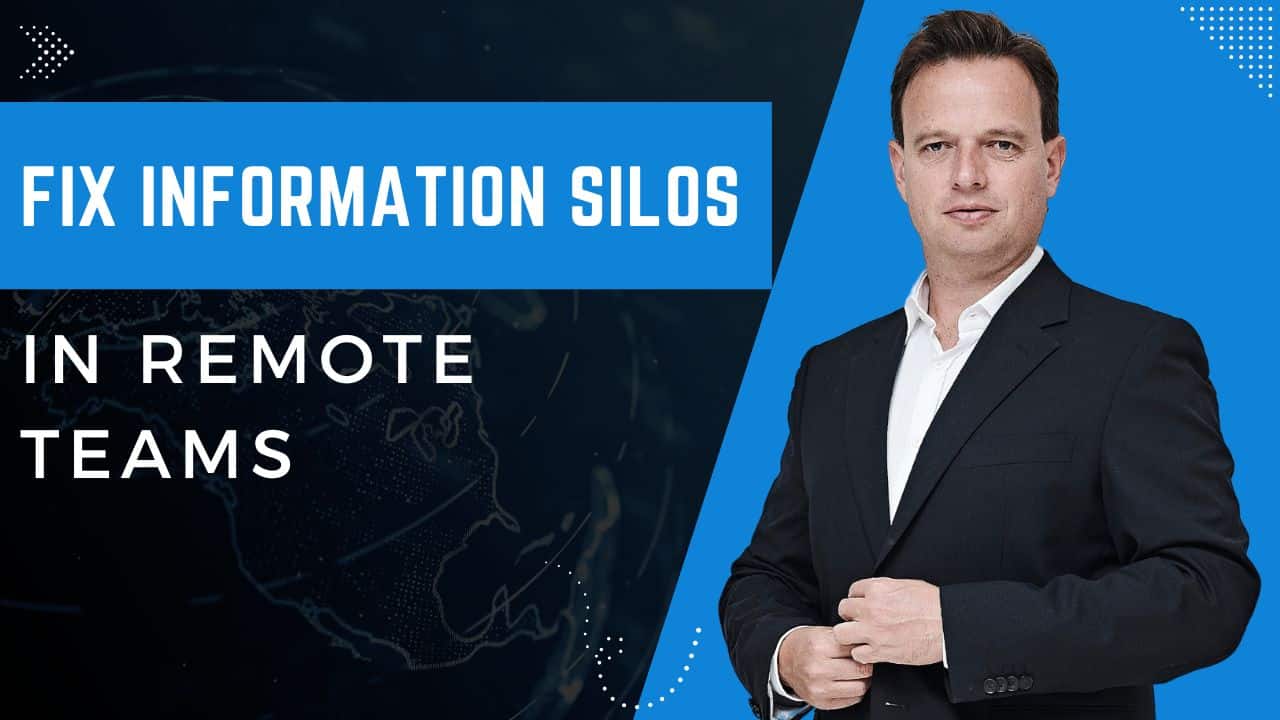Information silos are one of the biggest barriers to effective collaboration in remote teams.
When people work in isolation, key insights don’t get shared, mistakes get repeated, and decision-making slows down.
If your team struggles with poor cross-functional communication or redundant work, this workshop will help.
Most virtual teams fail in this area because they assume that communication is happening naturally.
In reality, without clear systems for knowledge sharing, important information gets trapped in certain departments, roles, or individuals—leading to confusion, frustration, and inefficiency.
High-performing virtual teams don’t just communicate; they structure their communication to prevent silos from forming.
If you want your team to work smarter, not harder, this workshop will provide the tools to make that happen.
In this workshop, you’ll identify and break down information silos in your virtual team—ensuring that critical knowledge flows freely across the group.
Key Benefits of Attending This Workshop
- Identify hidden information gaps within your team
- Develop strategies to share critical knowledge effectively
- Improve transparency and collaboration in a remote setting
- Reduce duplicated work and inefficiencies
- Strengthen trust and accountability across the team
Breaking Down Information Silos in our Remote Team
Time: 60 mins
Materials Needed
- Virtual meeting platform (Zoom, Teams, etc.)
- Shared document or collaboration board (Google Docs, Miro, MURAL, etc.)
- Polling or chat function for quick engagement
- Breakout room feature for small-group discussions
Objective
Improve knowledge sharing across the team to prevent information silos and ensure everyone has access to the information they need.
Process
1. Introduction (10 min)
- Facilitator sets the scene: “Information silos slow us down, cause frustration, and lead to duplicated work. Today, we’ll explore how to share knowledge more effectively as a team.”
- Quick poll: “How often do you struggle to find the information you need at work?” (Scale of 1-5)
- Discussion starter: “What’s one time when a lack of information caused a problem?”
2. Identifying Where Silos Exist (15 min)
Exercise: “Where’s the Block?”
- Breakout rooms (3-4 people).
- Discuss:
- “What information do you frequently struggle to access?”
- “Where do we keep information that others might not know about?”
- Each group lists 3 common information gaps in a shared document.
Debrief:
- Look for common themes (e.g., knowledge stuck in emails, unclear documentation, lack of shared folders).
- Reinforce that silos are often unintentional—people don’t realise others need the information they have.
3. Best Practices for Knowledge Sharing (15 min)
Introduce 3 key principles for preventing silos:
- Make knowledge easy to find – Use shared folders, wikis, or team dashboards.
- Standardise how information is shared – Set clear rules for documenting and storing key info.
- Encourage proactive sharing – Don’t wait to be asked; share updates and insights regularly.
Ask: “Which of these would make the biggest difference for our team?”
4. Practical Application (15 min)
Exercise: “Fix the Flow”
- Each participant writes down one piece of knowledge or resource they often have to search for.
- In pairs or small groups, they discuss:
- “Where should this information be stored?”
- “How can we make it easier for others to find?”
- Share a few examples and agree on 1-2 quick improvements the team can implement.
5. Action Plan & Close (5 min)
- Each person commits to one action to improve knowledge sharing in their role.
- Facilitator summarises key takeaways.
- Follow-up: Suggest a monthly knowledge-sharing check-in to keep improving.
Conclusion
By using this workshop, your team will never have to chase down missing information or struggle with fragmented communication.
Instead, it becomes a simple, structured process where critical knowledge is shared proactively, ensuring everyone has the information they need to collaborate effectively.
Well, that’s it for today. I hope you enjoyed it.
See you next week.

